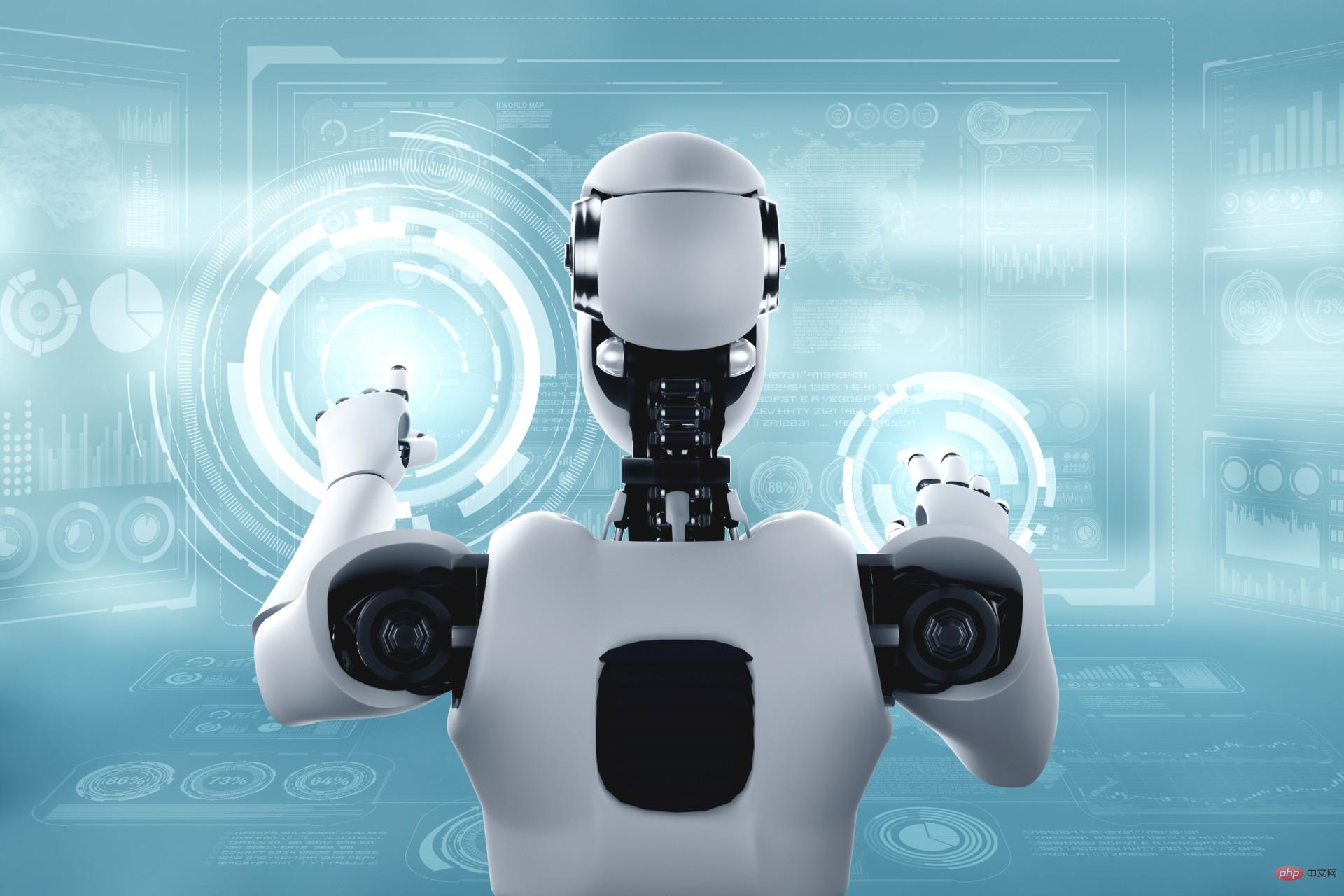Home >Technology peripherals >AI >Nine uses for generative AI in healthcare
Nine uses for generative AI in healthcare
- WBOYWBOYWBOYWBOYWBOYWBOYWBOYWBOYWBOYWBOYWBOYWBOYWBforward
- 2023-05-14 16:49:181838browse
Generative artificial intelligence (AI) has the potential to be a transformative force in healthcare, for example, by giving doctors and other healthcare providers the tools to analyze medical data, more accurately diagnose patients, and provide them with Provide a more personalized treatment plan.

# Therefore, it is critical for healthcare organizations to understand and prepare for the possibilities that generative AI may bring across the industry.
Here are nine uses of generative AI in healthcare:
Diagnosis and Screening
AI in healthcare combined with predictive analytics can Helps detect and diagnose various diseases earlier, thereby improving patient outcomes. AI analyzes large data sets and identifies diseases based on the data fed into its system. Generative AI enables doctors and other healthcare providers to make more timely and accurate diagnoses and develop treatment plans for patients faster, resulting in better outcomes for patients.
Personalized Medicine
Generative AI algorithms can analyze massive medical data sets to discover patterns, predict outcomes, and enhance care and wellness. Healthcare providers can use these personalized medicine technologies to customize more informed treatment plans and provide follow-up care to patients, increasing their chances of success. Using generative AI, healthcare providers can more easily communicate with patients, such as via email and text. Help patients comply with their prescriptions and/or treatment plans. In addition to leading to better outcomes, providing patients with personalized medicine can also reduce the overall cost of health care.
Increase Enrollment
By providing helpful information and timely reminders, generative AI in healthcare can encourage more people to enroll in health plans, especially during open enrollment periods. For example, by providing information about policy changes or any necessary steps that policyholders need to take, generated AI can increase policyholder engagement and encourage them to complete the steps they need to take in a timely manner.
Additionally, because generative AI enables insurance companies’ healthcare teams to quickly generate text, they can create different versions of policies tailored to different groups of consumers. For example, employees approaching retirement will need different options than those with young children.
Drug Discovery
Generative AI algorithms can analyze data from clinical trials and other sources to identify possible targets for new drugs and predict which compounds may be most effective. This can speed up the development of new drugs and bring new treatments to market faster and at lower cost.
The ability to interpret unstructured medical data
Unstructured medical data, such as electronic health records, medical records, and medical images, such as X-rays and MRIs, create gaps in the analysis process , which must be converted into a structured format. Generative AI has the ability to detect and analyze unstructured data from multiple sources and convert it into a structured format to provide comprehensive insights to healthcare providers.
Predictive Maintenance
Hospitals and other healthcare organizations can use generative artificial intelligence to predict when medical equipment is likely to fail, allowing for better maintenance and repairs and reducing equipment downtime.
Medical Robots
Hospitals use AI-powered medical robots to help with surgical procedures, such as suturing wounds and providing insights about surgical procedures based on medical data. Healthcare organizations can use generative AI to train these robots to interpret health conditions.
Developing new research ideas
Generative AI in healthcare can also be used to research ideas. For example, users can leverage ChatGPT in the healthcare space by asking questions and getting instant ideas or generating ideas just by typing on the desired topic. For example, a user might ask "Which medications are more likely to cure migraines?"
Avoid Medical Errors
Generative AI has the ability to correct errors during document work, automatically correcting spelling errors, which facilitates electronic prescribing and ensures the correct data populates the system.
Challenges of Generative AI
While there are many advantages to using generative AI in healthcare, there are also some potential disadvantages.
For example, generative AI in healthcare is used to create synthetic images, videos, and audio; however, it is often difficult to distinguish generated content from real content, which can lead to ethical issues because generative Artificial intelligence can manipulate real healthcare data.
Additionally, patients use generative AI tools to ask questions, communicate and learn more about their medical conditions. Because of this, users of generated AI tools must be certain about the accuracy and authenticity of the information generated, as it can be difficult for the AI to keep up with the latest data. Providing patients with inaccurate information can mislead them and harm their health.
The use of generative AI in healthcare also raises questions about protecting sensitive patient medical data and protecting patient privacy. There is also the possibility that someone may have unauthorized access to this healthcare data and may misuse it.
Generative AI algorithms are also susceptible to bias and discrimination, especially if the algorithm is trained on healthcare data that is not representative of the population the data serves. This may lead to inaccurate diagnosis and/or treatment planning for the target population.
Additionally, if used inappropriately, generated artificial intelligence algorithms may make incorrect or harmful medical decisions. Healthcare providers who rely too much on these algorithms may be unable to make their own judgments.
The use of generative AI in healthcare will continue to increase due to the ability to generate images, text, audio, and more, changing the way patients and providers view healthcare.
The above is the detailed content of Nine uses for generative AI in healthcare. For more information, please follow other related articles on the PHP Chinese website!
Related articles
See more- Technology trends to watch in 2023
- How Artificial Intelligence is Bringing New Everyday Work to Data Center Teams
- Can artificial intelligence or automation solve the problem of low energy efficiency in buildings?
- OpenAI co-founder interviewed by Huang Renxun: GPT-4's reasoning capabilities have not yet reached expectations
- Microsoft's Bing surpasses Google in search traffic thanks to OpenAI technology

